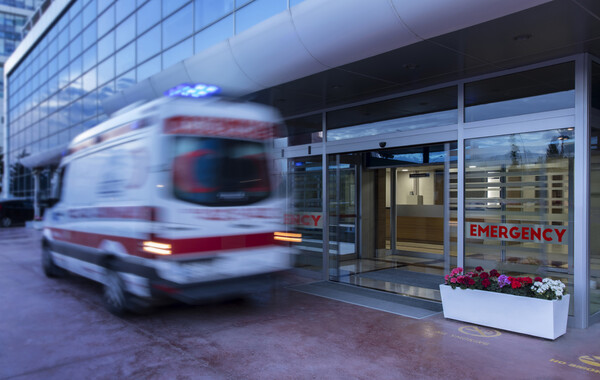
The recent death of a teenager in an ambulance after failing to find hospitals to accept the patient in Daegu has caused social stirs.
However, the medical community said the incident was “not surprising,” given the limitations in the current emergency care system.
“One of the primary reasons for the emergency healthcare service system in Daegu is the regional emergency centers treat both severe and mild patients so that they have no beds to accept urgent patients requiring first aid,” the Korean Medical Association (KMA) said, calling for systemic improvement.
To prevent emergency patients from wasting time on the road by failing to go to medical institutions on time, the health authorities should actively find actual situations at emergency rooms and continue to supplement and improve problems within the system, the doctors’ group said.
It also pointed out that law enforcement authorities should not take individuals or medical institutions responsible for the incident. Police said they would investigate hospitals and fire authorities for the Daegu incident.
“By misjudging the causes of the problem, they should not attribute it to the failures or improper responses of individuals, medical workers or institutions,” the KMA said. “Inappropriate administrative steps against medical workers can sap their morale and discourage their services.”
For emergency care and other essential healthcare systems to operate normally, the government should review whether sufficient efforts and support to improve them are being made instead of applying laws and regulations strictly, the KMA said. It added that to prevent the collapse of the essential care system, including first aid, the authorities should solve fundamental problems so medical personnel can engage themselves in essential care positively.
More specifically, the KMA called for enacting a special law to handle essential care-related accidents, strengthening administrative and financial support for relevant personnel, including medical residents and specialists, improving the work environment for essential care, and increasing medical fees for essential care through intensive financial injection.
“Essential care crisis is the entire nation’s crisis, and the restoration of the collapsed medical system will require massive money and time incomparable to the current support,” it said. “The area needs more intensive support from the government.?
The Korean Hospital Doctors Association (KHDA) cited the support measures excessively focusing on university hospitals as a problem.
“The recent tragedy might not have occurred if more hospitals had sufficient infrastructure to treat emergency trauma patients,” the association said. “So far, the government has relied on stop-gap measures by concentrating its support and money on university hospitals, leading to the scarcity of medical institutions dealing with essential care in provinces.”
Noting that most policies in essential healthcare support still focus on university hospitals and large hospitals, KHDA said effective support policy should move toward expanding the basis of essential care by allowing small- and medium-sized hospitals to hire workers.
“To eliminate time-old practices of punishing scapegoats whenever accidents occur, the government must develop rules to exempt medical workers’ responsibility in inevitable cases,” it added.

